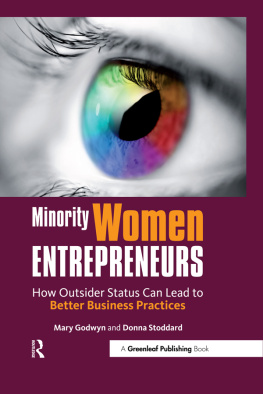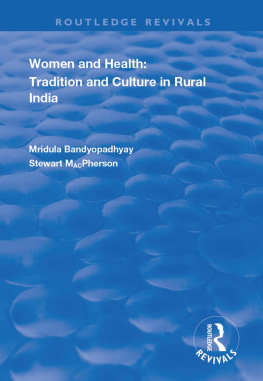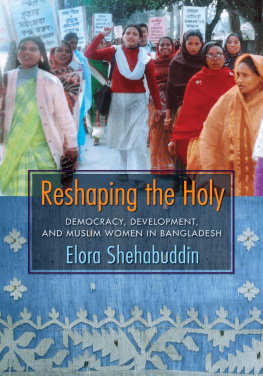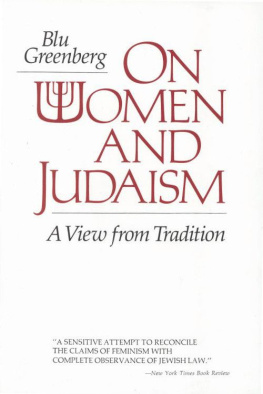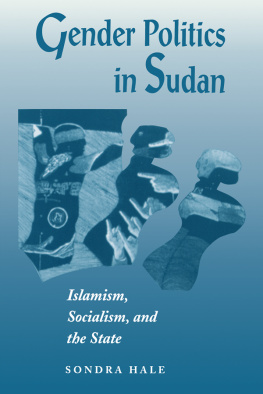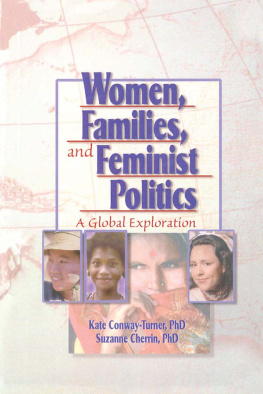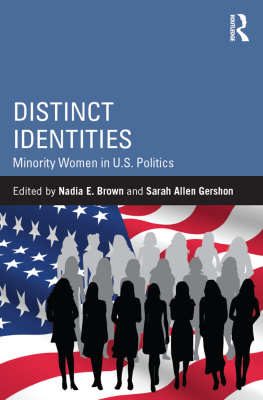Women, Violence and Tradition
About the Editor
Tamsin Bradley is Lecturer in International Development at the University of Portsmouth, and was previously Principal Lecturer in Anthropology and Director of the International Centre for Community Development in the Faculty of Applied Social Science at London Metropolitan University. Her research focuses on Indian religions and culture and examines the impact of gender and international development work on the lives of local people. She is co-director of the Dowry Project which combines theory and practice in the pursuit of human rights for women. Her key publications include Religion and Gender in the Developing World (2010) and, with Emma Tomalin and Mangala Subramaniam, Dowry : Bridging the Gap between Theory and Practice (2009).
Women, Violence
and Tradition
Taking FGM and other
practices to a secular state
Edited by
TAMSIN BRADLEY
Zed Books
LONDON & NEW YORK
Women, Violence and Tradition: Taking FGM and other practices to a secular state was first published in 2011 by Zed Books Ltd, 7 Cynthia Street, London N1 9JF, UK, and Room 400, 175 Fifth Avenue, New York, NY 10010, USA
This ebook edition was first published in 2013
www.zedbooks.co.uk
Editorial Copyright Tamsin Bradley 2011
Copyright in this collection Zed Books 2011
The right of Tamsin Bradley to be identified as the editor of this work has been asserted by her in accordance with the Copyright, Designs and Patents Act, 1988
Typeset in Great Britain by Free Range Book Design & Production Limited
Index: Rohan Bolton,
Cover designed by Alice Marwick , www.alice-marwick.co.uk
All rights reserved. No part of this publication may be reproduced, stored in a retrieval system or transmitted in any form or by any means, electronic, mechanical, photocopying or otherwise, without the prior permission of Zed Books Ltd.
A catalogue record for this book is available from the British Library
Library of Congress Cataloging in Publication Data available
ISBN 978 1 84813 961 9
Contents
Acknowledgements
There are many people to thank for this volume. I have to begin by thanking my wonderful anthropology and community development students at London Metropolitan University. Although some of them are in their own right authors of this volume, they have received support and encouragement from their peers. We have enjoyed together many heated debates out of which we came to realise how important a volume such as this really is. I would also like to acknowledge colleagues who have supported this venture: the Dean of the Faculty of Social Sciences, Professor John Gabriel; Academic Leader in Social Sciences, Peter Hodgkinson; and Associate Dean Brian Hall. On a daily basis both the authors and I have received support and encouragement from Lynda Reaich, Anne Massey, Zafar Khan, Sami Ramadani, Brian Mcdonough, Jenny Harding and Tara Young. I know the students/authors behind this volume would not have developed as writers and critical thinkers without the excellent teaching and commitment of many inspiring lecturers, including those listed above.
This volume is dedicated to the women whose stories are recounted in it and they deserve the greatest acknowledgement for their courage and willingness to participate, to become part of it. This volume is intended to make a positive contribution, however small, to their lives.
We must also acknowledge the work of dedicated activists and practitioners who respond on a daily basis to the abuse suffered by black and minority ethnic (BME) women. Hannana Siddiqui is one such activist who along with her colleagues at Southall Black Sisters (SBS) works tirelessly to push for change and to support women who come forward to change their lives for the better. This volume is also for SBS in the hope that it might support their campaigns and help evidence their political visions. Any profits awarded to the authors will be donated to Southall Black Sisters. It seems only right that this volume contributes in every way possible towards a better and more equal society for all.
About the Contributors
Isha Abulkadir is in her final year of a BA in Anthropology and Sociology, Faculty of Applied Social Sciences, London Metropolitan University. She is an activist working specifically with the Somali communities in London to end the practice of female genital mutilation.
Ebyan Ahmed has successfully completed her BA in Anthropology and Sociology, Faculty of Applied Social Sciences, London Metropolitan University. She is now pursuing her career as a paramedic and works to promote cultural awareness in the health service.
Esline Dzumbunu is in her final year of a BA in Anthropology and Sociology. She enrolled on her degree following a career as a banker. She also works as a volunteer for the Salvation Army and advocates on behalf of the homeless.
Noorjahan Begum has completed a BSc in Community Sector Management, Faculty of Applied Social Sciences, London Metropolitan University. She now works for a research-focused community organisation in Tower Hamlets where she promotes the rights of ethnic minority women.
Charlenie Naik has completed her BSc in Psychology and Social Anthropology, Faculty of Applied Social Sciences, London Metropolitan University. She is now pursuing postgraduate studies in anthropology and hopes to work in international development.
Sana Khilji is completing her BA in Anthropology and Sociology, Faculty of Applied Social Sciences, London Metropolitan University, following which she intends to work for a community organisation in London.
Hannana Siddiqui is head of policy and research for Southall Black Sisters and co-founder of Women Against Fundamentalism. She has published widely on the rights of BME women, including (with P. Patel), Shrinking Secular Spaces: Asian Women at the Intersect of Race, Religion and Gender in R. Thiara and A. Gill (eds), Violence against Women in South Asian Communities: Issues for Policy and Practice (2010).
Introduction
This volume began in a seminar room three years ago with a discussion into the ethics of anthropological research and the responsibilities of fieldworkers towards the people they study. A hand went up and one of my Somali students began to tell us why studying anthropology is so important to her. I will never forget the conversation in which she told the class, I am here because I want to challenge practices within my own culture, specifically female genital mutilation [FGM]. It happened to me and has ruined parts of my life; I do not want it to happen to my sisters or children. I looked around the class and saw some of my students in tears; I realised then my responsibility to manage their shock at this close encounter with an experience far removed from their Western secular lives, but mostly to Isha for whom this conversation marked a significant step in her personal quest to change attitudes towards womens bodies in Somali culture. This volume is an important opportunity for Isha and other similarly minded black minority ethnic (BME) women to explore, record and give voice to womens experiences, positive and negative, of their cultural and religious heritage. It represents an important platform and space upon and within which challenges towards aspects of tradition are articulated whilst other dimensions are acknowledged for the security and sense of identity, purpose and empowerment they provide.


